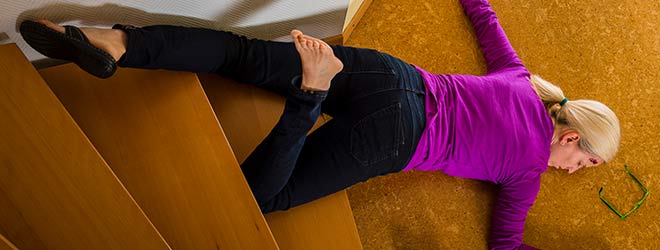
There are many different types of accidents that fall under the category of “slip and fall.” They are usually accidents resulting from poor lighting, slippery surfaces, holes or gaps in walking surfaces, or broken or missing handrails. If a property owner knew or should have known that the dangerous condition existed, but they did not take steps to fix the condition, they may be responsible for injuries that occur because of it. Contact our Rhode Island Slip and Fall lawyers at (401) 431-1990 or fill out a contact form online for assistance with your case.
Have You Been Injured in a Slip and Fall in Rhode Island Due To A Property Owner’s Negligence?
Call Us Today for a Free Case Evaluation.
- Lack of building maintenance. Tenants or guests of tenants in apartments, condos, or other multi-family housing arrangements are entitled to safe conditions in their buildings. Landlords are required to properly maintain their common areas, such as making sure that there are handrails on stairs, or that there is adequate lighting in the hallways. Unfortunately, it is common for landlords to neglect these common areas, which can lead to dangerous conditions.
- Ice and snow. Ice and snow that accumulates in the parking lots, walkways, and entrances of buildings is very dangerous. Landlords and property owners often do not properly address the accumulating snow and ice, and their attempts to clear it can sometimes make the condition more dangerous.
- Retail stores. It is common to see fruits or vegetables unknowingly dragged around a grocery store, a laundry detergent spill in a department store, or a refrigerator leaking water into an aisle. Stores have a responsibility to keep their properties safe for their customers.
- Parking lots. Parking lots of all kinds can often contain dangerous slip and fall hazards. Uneven surfaces, sand and gravel, and potholes can all cause a slip and fall type of accident. Property owners are obligated to maintain both their parking lots and surrounding areas.
- Malls. Similar to the way that a landlord of an apartment building must maintain their property, the management of the mall must maintain the common areas of the mall. This means they must react to and fix dangerous conditions in the mall, such as spills in the food court, loose tiles, or other potential causes of slip and fall accidents.
- Work. If you slip and fall at work, you may be able to receive workers’ compensation. Employers are required to make sure that their ‘employee only’ areas are safe in addition to the areas that customers have access to. Depending on the specific circumstances of the slip and fall, you may also be able to file a claim against a third party for your injury.
- Someone else’s home. Slip and fall type accidents sometimes occur at private residences. When a guest has been invited onto the property, the owner of the property has a very high responsibility to make sure that it is safe. These types of accidents usually occur around pool areas or walkways. Homeowners usually have insurance than can cover slip and falls at their property.
- Government property. Government properties usually have more protection from slip and fall lawsuits than a store or private residence, but that does not mean they do not have to maintain their properties. However, slip and falls on government properties are often more difficult to prove than slip and falls at other places.
Why Hire Us?

If you suffered an injury due to a slip and fall in Rhode Island, you may be entitled to compensation for your medical bills, lost income and pain and suffering, among other losses. Our Rhode Island Slip and Fall lawyers have years of experience handling these types of cases, and there is no fee unless you receive an award or settlement. For a free (no obligation) case evaluation, call our toll free number at (401) 431-1990 or fill out a contact form online.



Social Security Disability
RI Social Security Disability
MA Social Security Disability